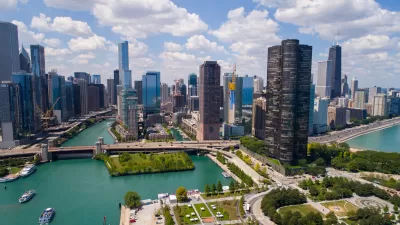While cities are eager to encourage businesses to go green, many government incentive programs are not designed with small businesses in mind.
"As I have studied the various ordinances and incentives for going "green" around the United States, I have found that many of the benefits for sustainable development primarily go to the larger developer. These include a rebate of impact fees or abatement of property taxes-incentives that directly benefit mostly large companies who are developing their own facilities.
But what about the small businesses? Take Central Florida, for example, where I live and work: Approximately 85% of the businesses in the greater Orlando area are small businesses with 15 or fewer employees that lease space of less than 15,000 sf. These small businesses usually are not in any position to benefit from the green incentives typically offered by municipalities for development.
We all hear in the news the ways large corporations are embracing the green movement. They often lead the pack with new trends-sustainability, for instance-and then it filters down to smaller businesses. However, a number of my small business clients are hesitant to incorporate green practices, much less start a building from scratch with "green" in mind. They find it too costly to jump on board the green bandwagon."
FULL STORY: Small Shops Not on the Green Bandwagon

Maui's Vacation Rental Debate Turns Ugly
Verbal attacks, misinformation campaigns and fistfights plague a high-stakes debate to convert thousands of vacation rentals into long-term housing.

Planetizen Federal Action Tracker
A weekly monitor of how Trump’s orders and actions are impacting planners and planning in America.

In Urban Planning, AI Prompting Could be the New Design Thinking
Creativity has long been key to great urban design. What if we see AI as our new creative partner?

King County Supportive Housing Program Offers Hope for Unhoused Residents
The county is taking a ‘Housing First’ approach that prioritizes getting people into housing, then offering wraparound supportive services.

Researchers Use AI to Get Clearer Picture of US Housing
Analysts are using artificial intelligence to supercharge their research by allowing them to comb through data faster. Though these AI tools can be error prone, they save time and housing researchers are optimistic about the future.

Making Shared Micromobility More Inclusive
Cities and shared mobility system operators can do more to include people with disabilities in planning and operations, per a new report.
Urban Design for Planners 1: Software Tools
This six-course series explores essential urban design concepts using open source software and equips planners with the tools they need to participate fully in the urban design process.
Planning for Universal Design
Learn the tools for implementing Universal Design in planning regulations.
planning NEXT
Appalachian Highlands Housing Partners
Mpact (founded as Rail~Volution)
City of Camden Redevelopment Agency
City of Astoria
City of Portland
City of Laramie





























